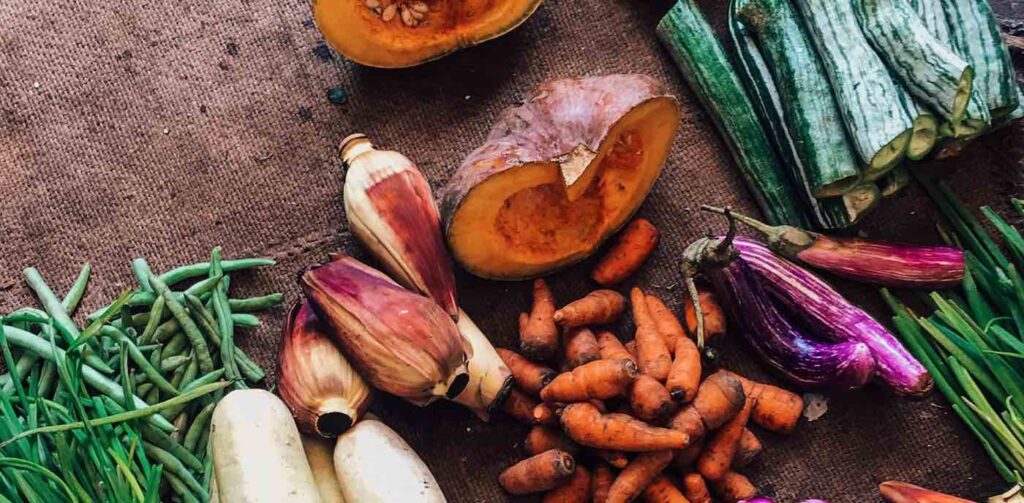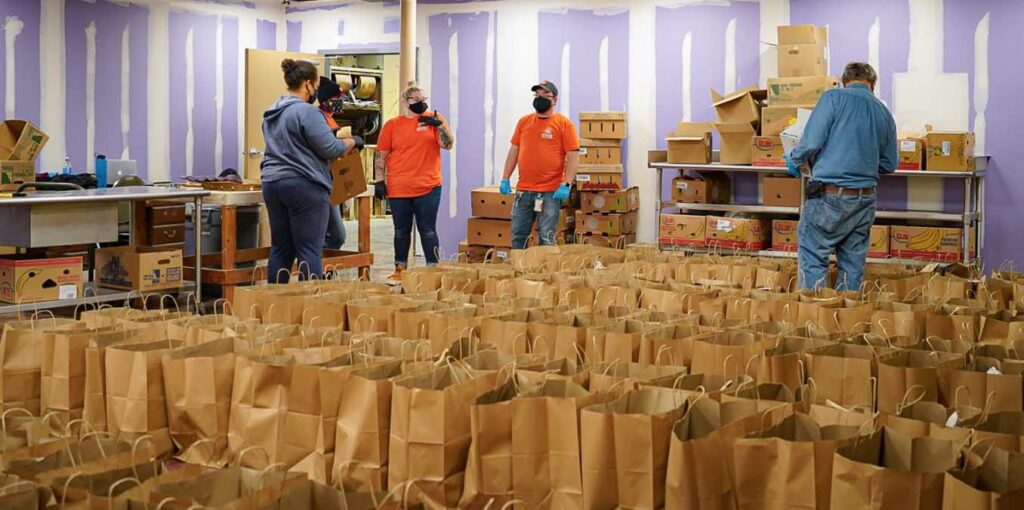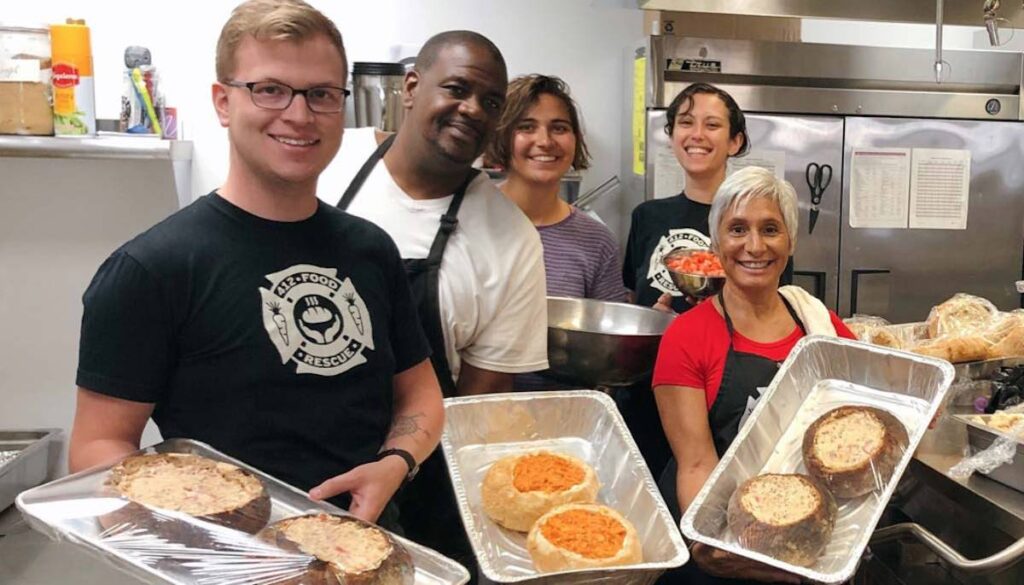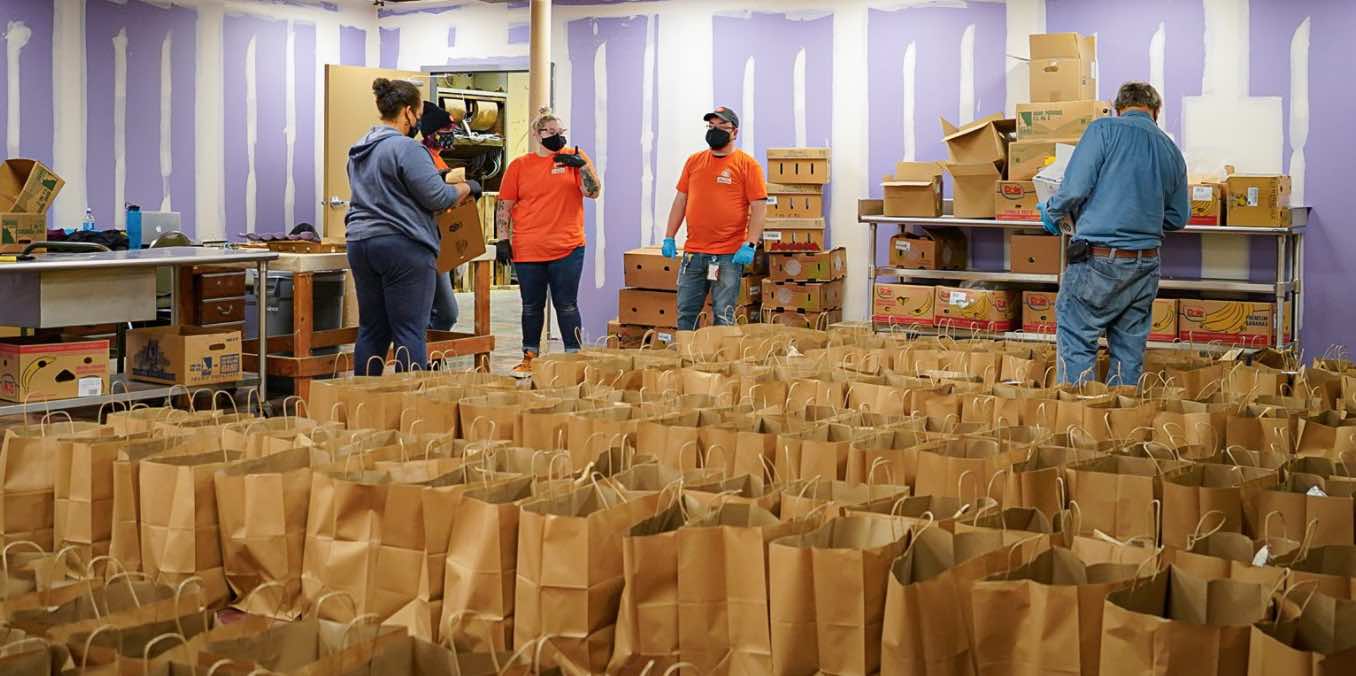In a recent episode of the Food Network competition Chopped, contestants were challenged to make a dish using a basket of random ingredients like bacon, mangoes and banana bread. Imagine the same challenge, except that the basket has been replaced by 1000 pounds of discarded food.

This was the challenge confronting the Pittsburgh nonprofit 412 Food Rescue. They had connected with hundreds of local businesses, discovering hundreds of pounds of good surplus food available for donation every day. And, using its own app, the group had created the largest volunteer-led food transport network in a single urban region.
But there was no kitchen in the region that could accommodate the really large gifts coming from big donors and turn those into single-serving meals.
So in 2019, the organization came up with a solution by opening its own kitchen, the Good Food Project. Paying no money for food and creating zero waste, the kitchen is a model for effective food recovery and distribution.
Food waste makes up about 25% of all material in landfills—more than any other single source of waste—and when it rots, it’s a leading cause of greenhouse gas emissions.
The Good Food Project prevents waste by transforming food that might go to the landfill into healthy, heat-and-eat meals and shelf-stable items packaged in compostable containers. These meals are then distributed to nonprofit partners serving the needy.
The donations come from partners like Gordon Food Service, which may find themselves with food that is still perfectly good to eat, but cannot be sold due to aesthetic standards, sell-by timelines, or transit mishaps.
RELATED: 13-Year-old Boy Granted a “Make-A-Wish” Uses It to Feed the Homeless Every Month for a Year

The Biggest Food Hero
Leah Lizarondo launched 412FoodRescue.org in 2015 to redirect food from the waste stream directly to households and nonprofits. To make that pivotal connection, she created an app that gives volunteers pick-up locations and delivery destinations, so they can jump in their car and close the gap between the food surplus and those who need it.
The app, FoodRescueHero is now used by a growing team of 25,000 volunteer drivers in 15 cities.
Together with 800 food retailers, they have turned more than 70 million pounds of surplus into nearly 57 million meals—and mitigated more than 30 million lbs. of CO2.
Meanwhile, their kitchen in Millvale, on the outskirts of Pittsburgh, has produced over 17,000 meals, and is currently creating upwards of 600 meals per week—all with zero cost for food.
While the kitchen—which is solar-powered to help offset energy use—has been expanding its reach, it has also been reducing its waste – all the way to zero. The project stabilizes and uses every ounce of food that it can, and the remainder is composted.
LOOK: App Lets You Buy Leftover Food From Your Favorite Restaurants—Saving 150k Meals a Day Globally

The kitchen project is just the latest in the garrison of good news emanating from Leah’s determination to solve 3 problems at once—food waste, food insecurity, and the climate crisis.
WATCH her video about her volunteer app to see how heroes are born…
FEED Your Friends With Some Good News – SHARE on Social Media…




















